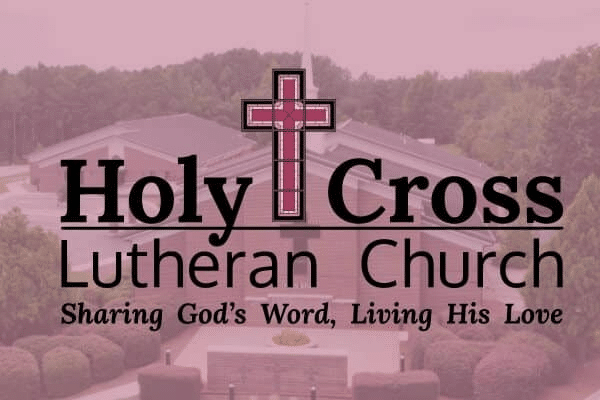
1 Kings 17:8-16 and Mark 12:38-44
November 10, 2024
Several years ago an agent for the Internal Revenue Service went to visit a man in Florida who appeared to have a rather odd tax return. His income was just under $40,000 and he claimed to have given $5200 – about 13% of his income – to his church. While he was certainly within the 20% limit, which apparently is the level that can call for an investigation, the agent thought that it still looked very suspicious. So he went to visit the man at his home and asked to see the documentation that would support his offerings to the church. The man provided all of the appropriate documentation, even though the agent continued to question the man about his church offerings. Finally, the agent realized that the man was telling the truth and apologized for bothering him; but he explained that he was required to check on all deductions that seemed unusually high. As the agent was leaving, the man said, “Since you have questions about the offerings I make to my church, why don’t you and your family come and join me for worship at my church this Sunday.” The agent replied, “Thank you, but I already belong to a church.” “Oh, excuse me,” said the man, “but that possibility never occurred to me.” As the agent drove home, he kept wondering what the man meant by that last remark. But on Sunday morning when the agent put in his usual offering at his church – about 1% of his income – he finally understood. He had never given sacrificially to God, even though God had sacrificed tremendously for him.
Sacrificial giving is linked to trust – trusting in God to provide and to meet all of our needs, and this is seen dramatically in our Old Testament lesson for today. In this text God sent Elijah to see a widow in the city of Zarephath and God told him that this widow would care for him. Now, to fully appreciate this story, we need to know that there was a great famine and drought that was taking place in the land and it had been going on for 3 years. Also, it is important to understand that widows in those days were some of the lowest people in society. Their husbands did not have retirement accounts to provide for them, social security did not exist, and people did not have canned food stored in their homes if times ever got tough. As a result, widows were usually poor as they had no one to provide for them. So when God told Elijah to go to a city and see a widow who would take care of him, that had to sound unusual to Elijah. I’m sure he thought, “A widow is going to provide for me?” But, as always, God already had everything figured out. There is nothing that happens in life that surprises God. In other words, God will never look at a situation and say, “Wow, I never saw that coming.”
Plus, this widow has a son she is caring for, and yet somehow she has managed to survive this famine up to this point. So Elijah goes to the city as God commanded him, he sees a widow gathering sticks, and says to her in verses 10-11, “Please bring me some water to drink and some bread to eat.” Now this had to sound outrageous to her. This lady had nothing left. She knows she is not going to make it. In verse 12 it says that things are so bad that she has decided to make one last meal for her and her son, and then she is going to die. Can you imagine that? I’m sure we have all experienced discouragement and disappointment, maybe even disaster in our lives, but this widow has no hope of survival. She is so poor that she is certain she is going to die. She has got to be scared. But then God, through Elijah, makes this promise to her in verses 13-14 saying, “Do not fear. Go and make that last meal, but before you do, make a meal for me, because this is what God is saying to you: That handful of flour in your jar will not run out, and that oil will not run dry, you will have food every day until this famine is over.”
Now that had to sound ridiculous. There is no way any rational human being, looking at what she had left and knowing there is no more food in the region, would have believed those words. But God was working on her heart and she takes a huge leap of faith. She trusts that outrageous promise. She acted as though the flour and oil would last forever, and that is the very essence of faith – “being certain of what we do not see” as it says in Hebrews 11. This widow had faith. She trusted in the word of God to provide and that word came true for her. Can you relate to that kind of trust and sacrificial giving? Have you experienced that extreme happiness of a deep love for God in which giving become a source of joy and not a duty?
We see something similar take place with a widow in our Gospel lesson. Jesus was sitting in the outer courtyard of the temple in Jerusalem with His disciples watching people as they put their offerings into these large receptacles. As many people put in large sums of money, what catches Jesus’ attention is the sound of two small coins that couldn’t really buy anything given by a widow and this prompts Jesus to say, “This poor widow has put in more than all those who are contributing to the offering box. For they all contributed out of their abundance, but she out of her poverty has put in everything she had, all she had to live on.” (Mark 12:43-44)
Why does Jesus praise her? What’s different about her giving? It’s the fact that this poor widow was willing to give from her heart. Her love of God knew no bounds. She gave even though she couldn’t afford it. She gave because she wanted to give. She was not compelled by guilt, or fear, or some kind of reward; she gave because she loved God. She gave because she felt a deep commitment to God. She gave because this was the one way she could respond to God’s blessings in her life. She gave sacrificially, without seeking any kind of recognition. From a worldly point of view, this widow probably did not have a lot to be thankful for, as she may have dreamed of growing old with her husband, but was now left with nothing after her husband died. And yet, she gave all she had, because she loved and trusted Jesus.
What’s interesting is that we often give joyfully and sacrificially to our children and families; but do we ever regret giving them gifts? Of course not. There is no husband who looks at his wife every day and thinks, “I wish I had not spent so much money on her wedding ring.” Or looks at his children and thinks, “I wish I had not gotten them so many presents for Christmas.” No, just the opposite. We often wish we could give them more. And why do we give our best to our children and our families? Because we love them. So if we love God then we should delight in giving our best to Him. I don’t think God is calling any of us to give all of our money to Him. He is not calling anyone to become poor, but since God gives us our money, our time, and our abilities, He simply wants us to give a portion back to Him in response to what He has done for us. However, if we are not giving Him our best, then what does it say about our love and trust in Him? Are we truly honoring Him?
I have never met anyone who ever regretted giving to God. Just the opposite. Every person I have ever met who gives God their best, who gives sacrificially out of love for Him, feels good about it. That doesn’t mean it’s always easy, but God promises to meet all of our needs and the question then is do we believe that, do we believe God’s words? Where are you in your giving today? I know many of you gave joyfully, generously, and sacrificially to our Hurricane Helene Relief Fund. Your gifts are being used to care for those in need. But what does your regular giving to God say to your children or to your families about your love and trust in Him? Do they see in you, through you giving, a love for Jesus that will encourage them in their faith?
I have said many times that giving at Holy Cross is based on the biblical idea of “equal sacrifice, not equal gifts,” and these two widows in 1 Kings and the Gospel of Mark demonstrate this concept. So as you consider your giving, remember that the widows in these stories never complained, they did not hold anything back as they each gave their lives in their offerings. But more importantly, remember that Jesus never complained as He made His way to the cross. He trusted that His Heavenly Father would accept His sacrifice as He did not hold anything back in giving His entire life on the cross, to pay for our sins and to give us life forever with Him in His heavenly kingdom.


